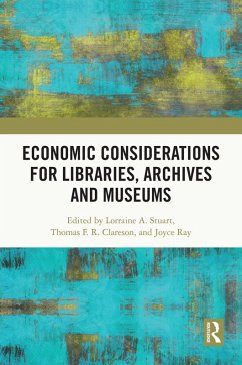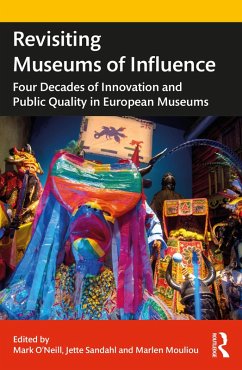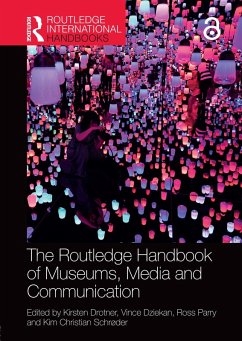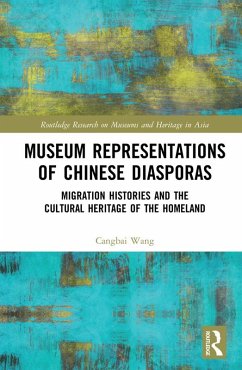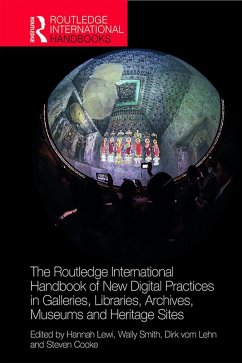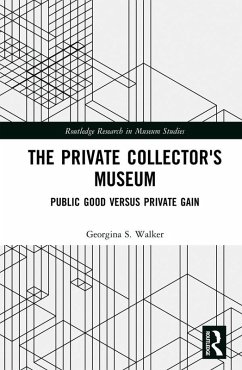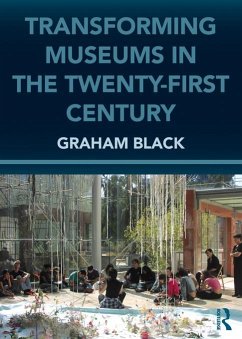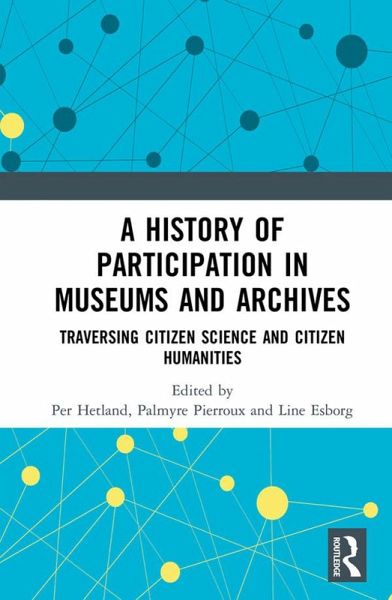
A History of Participation in Museums and Archives (eBook, ePUB)
Traversing Citizen Science and Citizen Humanities
Redaktion: Hetland, Per; Esborg, Line; Pierroux, Palmyre
Versandkostenfrei!
Sofort per Download lieferbar
0,00 €
inkl. MwSt.
Weitere Ausgaben:

PAYBACK Punkte
0 °P sammeln!
Traversing disciplines, A History of Participation in Museums and Archives provides a framework for understanding how participatory modes in natural, cultural, and scientific heritage institutions intersect with practices in citizen science and citizen humanities.Drawing on perspectives in cultural history, science and technology studies, and media and communication theory, the book explores how museums and archives make science and cultural heritage relevant to people's everyday lives, while soliciting their assistance and participation in research and citizen projects. More specifically, the...
Traversing disciplines, A History of Participation in Museums and Archives provides a framework for understanding how participatory modes in natural, cultural, and scientific heritage institutions intersect with practices in citizen science and citizen humanities.
Drawing on perspectives in cultural history, science and technology studies, and media and communication theory, the book explores how museums and archives make science and cultural heritage relevant to people's everyday lives, while soliciting their assistance and participation in research and citizen projects. More specifically, the book critically examines how different forms of engagement are constructed, how concepts of democratization are framed and enacted, and how epistemic practices in science and the humanities are transformed through socio-technological infrastructures. Tracking these central themes across disciplines and research from Europe, Canada, Australia and the United States, the book simultaneously considers their relevance for museum and heritage studies.
A History of Participation in Museums and Archives should be essential reading for a broad academic audience, including scholars and students in museum and heritage studies, digital humanities, and the public communication of science and technology. It should also be of great interest to museum professionals working to foster public engagement through collaboration with networks and local community groups.
Drawing on perspectives in cultural history, science and technology studies, and media and communication theory, the book explores how museums and archives make science and cultural heritage relevant to people's everyday lives, while soliciting their assistance and participation in research and citizen projects. More specifically, the book critically examines how different forms of engagement are constructed, how concepts of democratization are framed and enacted, and how epistemic practices in science and the humanities are transformed through socio-technological infrastructures. Tracking these central themes across disciplines and research from Europe, Canada, Australia and the United States, the book simultaneously considers their relevance for museum and heritage studies.
A History of Participation in Museums and Archives should be essential reading for a broad academic audience, including scholars and students in museum and heritage studies, digital humanities, and the public communication of science and technology. It should also be of great interest to museum professionals working to foster public engagement through collaboration with networks and local community groups.
Dieser Download kann aus rechtlichen Gründen nur mit Rechnungsadresse in A, B, BG, CY, CZ, D, DK, EW, E, FIN, F, GR, HR, H, IRL, I, LT, L, LR, M, NL, PL, P, R, S, SLO, SK ausgeliefert werden.





